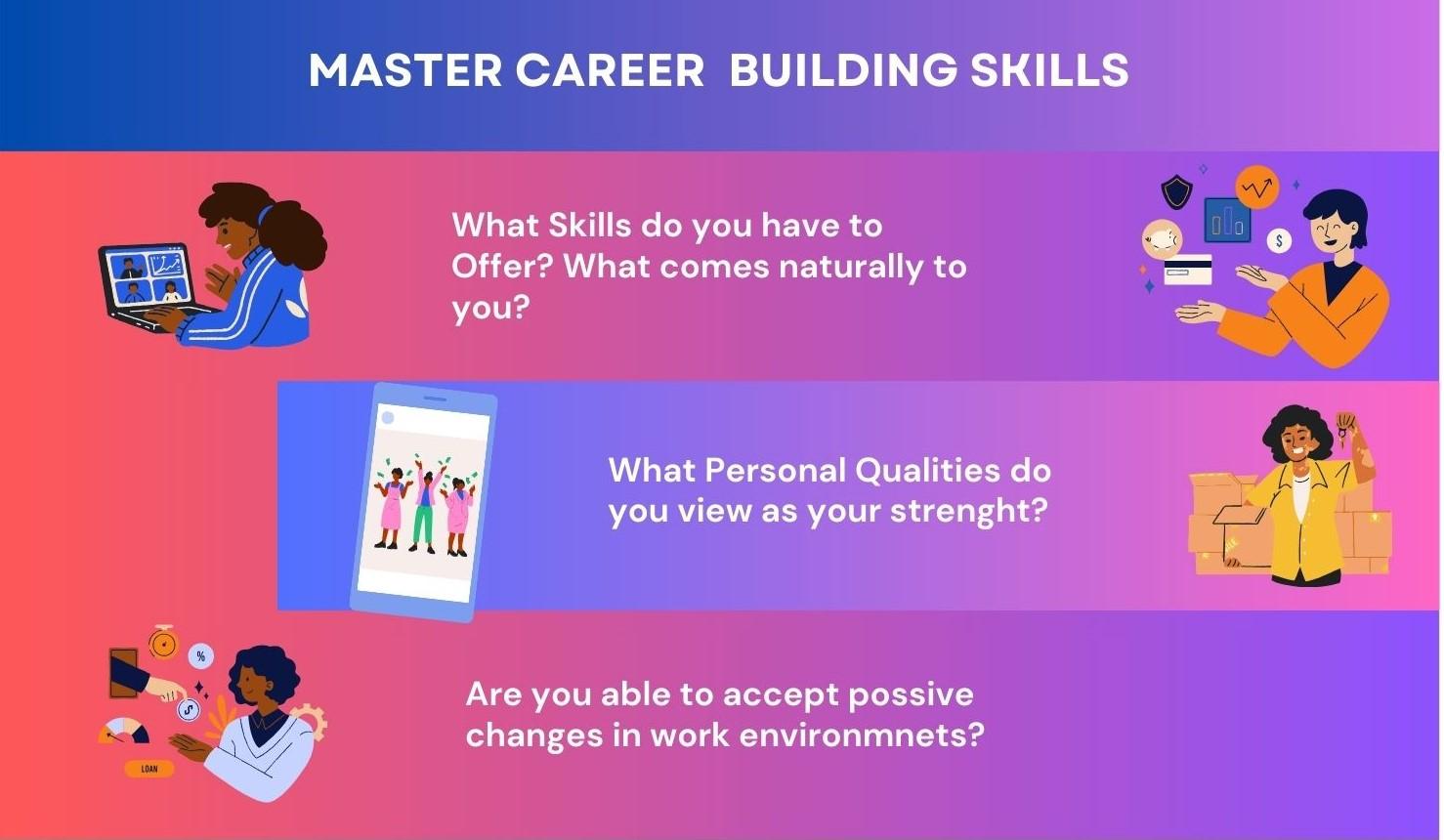Mastering Essential Career-Building Skills: Your Path to Professional Success

In today's rapidly evolving job market, possessing the right skills can be the difference between stagnation and advancement in your career. While technical expertise and academic qualifications are essential, career-building skills encompass a broader spectrum of abilities that are increasingly valued by employers across industries. These skills not only enhance your professional competence but also contribute to your overall success and satisfaction in the workplace.
One of the fundamental career-building skills is effective communication. Whether it's conveying ideas clearly in meetings, writing concise reports, or negotiating terms with clients, the ability to communicate effectively is crucial. Employers value individuals who can articulate their thoughts persuasively and listen actively to others. Developing this skill involves practicing clarity in speech, honing writing abilities, and understanding non-verbal cues to foster better interpersonal relationships.
Another vital skill is adaptability. In a dynamic work environment where change is constant, being able to adapt quickly to new technologies, procedures, or team dynamics is invaluable. Adaptability demonstrates resilience and a willingness to learn, traits that are highly sought after in today's competitive job market. Cultivating this skill involves staying current with industry trends, embracing challenges as opportunities for growth, and maintaining a positive attitude towards change.
Problem-solving skills are also paramount to career success. Employers appreciate individuals who can analyze complex situations, identify root causes of issues, and propose innovative solutions. Effective problem solvers are proactive in seeking resolutions and demonstrate critical thinking abilities that contribute to organizational efficiency and effectiveness. Developing this skill requires practicing analytical thinking, seeking feedback on proposed solutions, and continuously refining problem-solving techniques.
Leadership skills are essential for those aspiring to advance in their careers. Whether in formal managerial roles or informal team settings, effective leadership involves inspiring others, delegating tasks efficiently, and fostering a collaborative work environment. Leaders exhibit integrity, empathy, and a clear vision, guiding their teams towards achieving common goals. Developing leadership skills involves seeking mentorship opportunities, taking on leadership roles in projects, and continuously improving interpersonal dynamics within teams.
In today's interconnected global economy, cultural competence is increasingly valued. The ability to work effectively with individuals from diverse backgrounds demonstrates respect, empathy, and adaptability. Cultural competence involves understanding different perspectives, recognizing cultural nuances in communication styles, and fostering inclusivity within teams. Developing this skill requires openness to different cultures, seeking opportunities for cross-cultural collaboration, and challenging biases that may hinder effective communication.
Time management is a foundational skill that underpins productivity and efficiency in the workplace. Effective time managers prioritize tasks, set realistic goals, and adhere to deadlines, thereby maximizing their productivity. Employers value individuals who can manage their time effectively, demonstrating reliability and organizational skills. Developing this skill involves setting daily priorities, using time-tracking techniques, and periodically evaluating and adjusting your workflow to optimize efficiency.
Networking skills are crucial for building professional relationships that can enhance career opportunities. Networking involves cultivating contacts within your industry, attending industry events, and leveraging social platforms to connect with professionals. Strong networks provide access to job opportunities, industry insights, and mentorship, making them essential for career growth. Developing networking skills requires genuine interest in others, maintaining professional relationships, and offering value to your network.
Lastly, emotional intelligence (EQ) plays a significant role in career success. EQ encompasses self-awareness, self-regulation, empathy, and social skills, all of which contribute to effective interpersonal relationships and decision-making. Individuals with high EQ are adept at managing stress, navigating conflicts, and fostering a positive work environment. Developing emotional intelligence involves self-reflection, seeking feedback on interpersonal interactions, and practicing empathy and active listening in professional settings.
In conclusion, while technical skills and academic qualifications are essential, mastering career-building skills is critical for long-term success in today's competitive job market. Effective communication, adaptability, problem-solving, leadership, cultural competence, time management, networking, and emotional intelligence are all integral to advancing your career and achieving professional fulfillment. By continuously developing these skills and applying them in your professional life, you can enhance your employability, contribute meaningfully to your organization, and build a successful and rewarding career path.


- Art
- Causes
- Best Offers
- Crafts
- Dance
- Drinks
- Film
- Fitness
- Food
- Games
- Festival
- Gardening
- Health
- Home
- Literature
- Music
- Networking
- Other
- Party
- Religion
- Shopping
- Sports
- Theater
- Wellness



